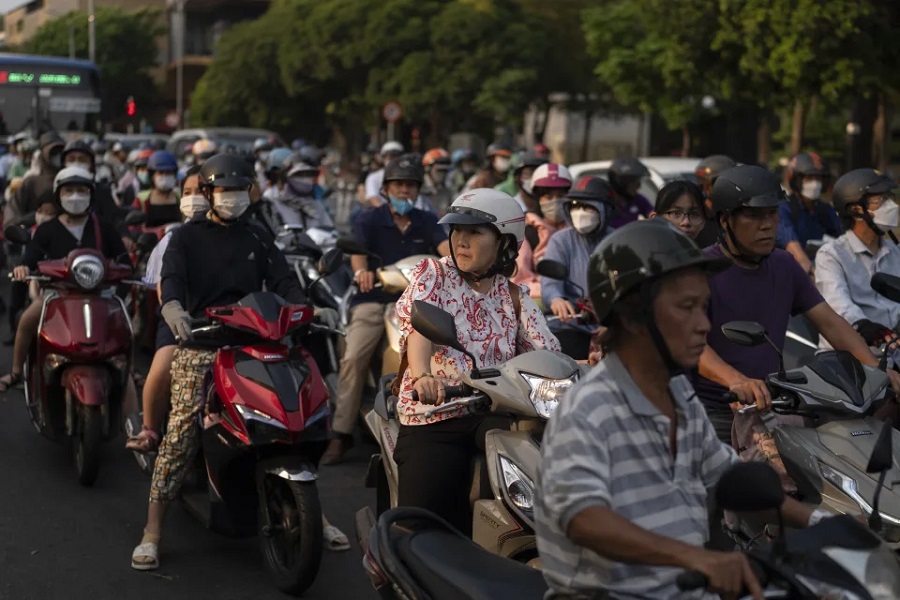11 Dec 2024

Tired Earth
By The Editorial Board

Countries in Asia will suffer worse damage from the climate crisis than other regions and are falling far behind in spending on improvements to limit the damage and adapt to changing weather patterns and natural disasters, the Asian Development Bank said in a report released Thursday.
The report said financing needs in developing Asian countries to cope with climate change range from $102 billion to $431 billion a year. That far exceeds the $34 billion committed to those purposes in 2021-2022, the Manila, Philippines-based regional development bank said.
Developing Asia accounted for nearly half of all global emissions in 2021, the latest year for comprehensive data, with China accounting for two-thirds of that and South Asia nearly 20%, the report said. That’s because even though emissions per person remain far lower than in Europe, Japan and North America, it is the world’s most populous region, home to about 70% of all human kind.
Most countries in the region have ratified treaties on climate change and presented national plans to cut their carbon emissions, but most also still lack clear road maps to reach “net zero” carbon emissions, the report said.
Countering moves toward greater reliance on renewable energy such as solar and wind power, regional governments were providing $600 billion in support for fossil fuels such as oil, gas and coal in 2022, it said. The subsidies make fuels cheaper, discouraging a shift to cleaner energy.
The report noted that the rate of sea level rises is about double the global average in the Asia-Pacific and about 300 million people in the region would face the risk of coastal inundation if sea ice in Antarctica collapses. Worsening storm surges also mean that China, India, Bangladesh and Vietnam would be the most affected, with damage amounting to an average of $3 trillion a year.
At the same time, higher temperatures are hurting worker productivity and health, said the report, which estimated that regional economies might see their gross domestic products decline by 17% by 2070 in a worst-case scenario of high carbon emissions. Such a scenario would also result in a doubling of the destructive power of tropical cyclones and storms, as weather grows more volatile and extreme.
The trends are already “locked in,” and warming will continue for decades, though the full implications of climate “tipping points,” such as warming seas melting polar ice caps, are not fully understood, the report said. Meanwhile, environments that usually would “capture” carbon emissions, such as the oceans and tropical forests, are changing so much that they instead are becoming sources of carbon emissions, through forest fires and other events.
The benefits of limited and adapting to climate change far outweigh the costs, the report contended. The ADB estimates that “aggressive decarbonization” could create 1.5 million energy sector jobs by 2050, while also preventing up to 346,000 deaths a year from air pollution by 2030.
By some estimates, poverty could increase by 64%–117% by 2030 under a high-emissions climate scenario, relative to no climate change, and the entire regional economy could fall by about 17%. The worst declines are forecast for Bangladesh, Vietnam, Indonesia and India and will deepen over time.
The report said the largest losses will be through reduced productivity, followed by fisheries, flooding and farming.
But governments can act to reduce the worst damage, the report said, pointing to the example of flood shelters in Bangladesh, which reduced deaths from catastrophic storms from hundreds of thousands of people in the past to fewer than 100 in recent years up to 2020.
“There is no avoiding the impacts of climate change, so stronger policy responses are needed to minimize loss and damage,” it said.
Source : yahoo.com
Comment